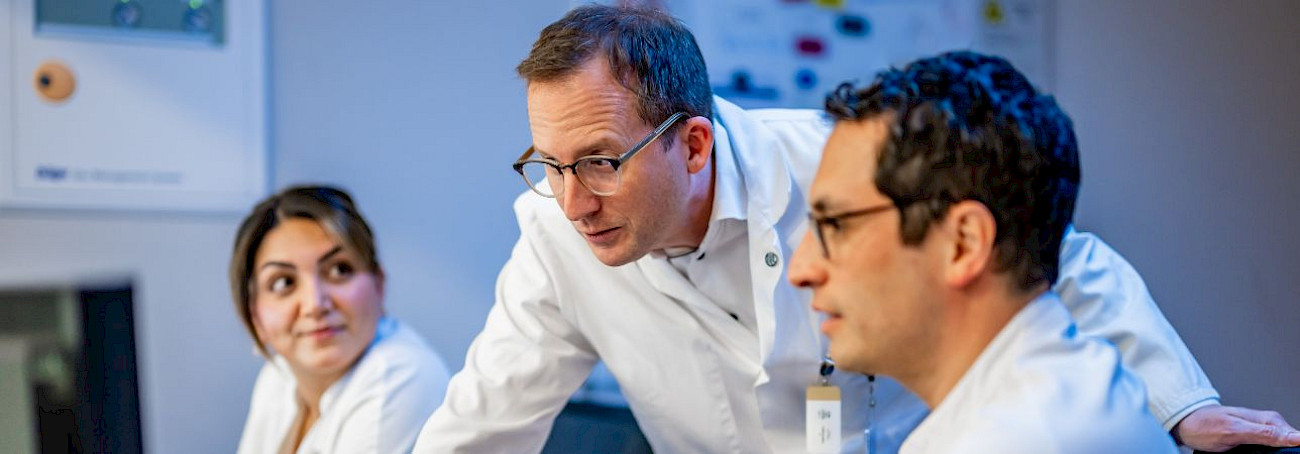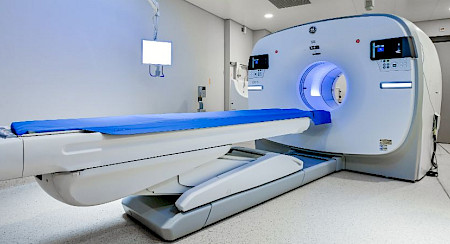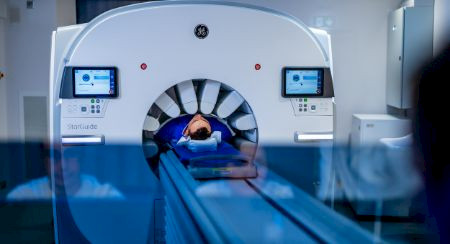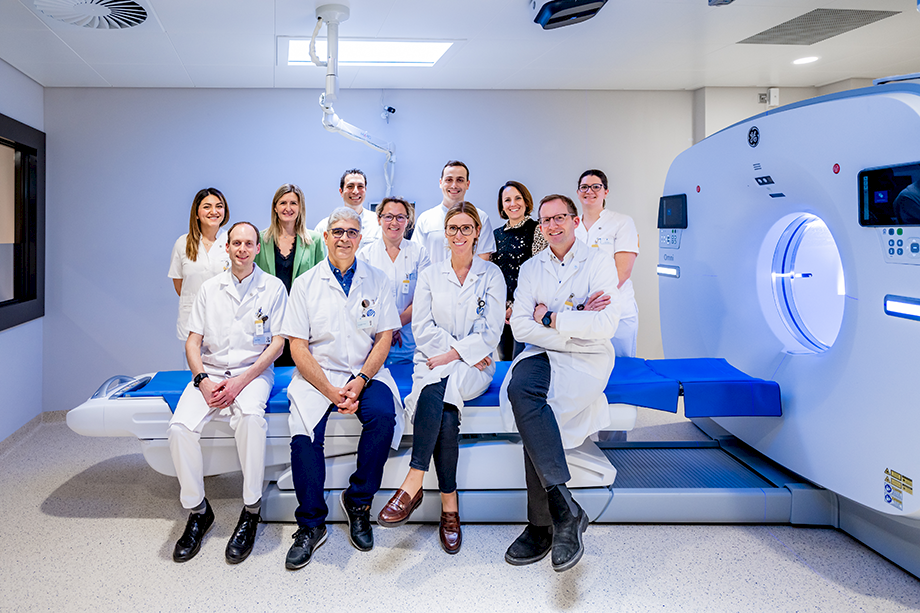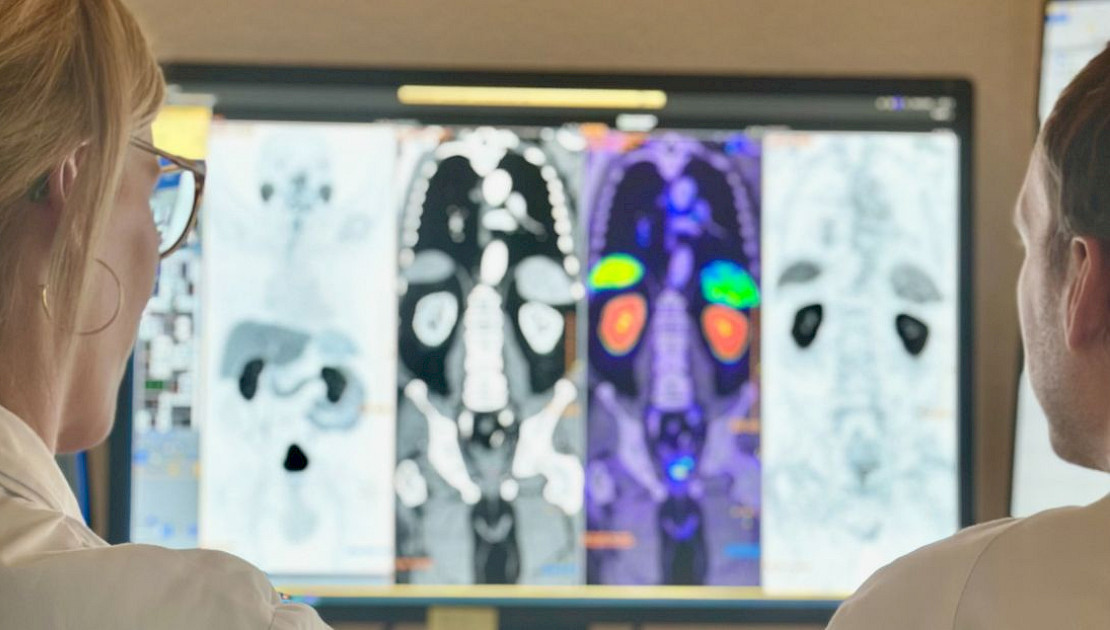The Nuclear Medicine Center of the Genolier Clinic is active in the fields of medical research and biotechnology, as well as in medical and medical-technical education.
It is also one of the few Centers of Excellence in Molecular Imaging and Theranostics of the company General Electric Healthcare, and the only center of its kind in Switzerland.
In this context, we are asking you to sign several documents regarding the use and protection of your data for research purposes. Indeed, our ability to diagnose and treat diseases has significantly advanced over the past decades. These advances have been made possible thanks to the sustained efforts of medical research, in which several generations of doctors, scientists, and patients have actively participated. A significant part of this research relies on the use of clinical data from patients' medical records, such as laboratory test results, medical treatments, or genetic predispositions.
How can you contribute to research?
By ticking "YES" and signing the consent declaration, you agree that your data may be reused for research purposes. The data include those collected in the past as well as those that will be collected during your current and future hospital and outpatient stays. This consent does not include biological samples.
If you do not sign the form, meaning in the absence of a response from you, the law provides that the data may be used exceptionally for research after authorization by the competent ethics committee. It is therefore important for you to express your choice.
Your consent is voluntary. It remains valid indefinitely or until a possible withdrawal. You can withdraw your consent at any time using the contact details below without having to justify your decision. In case of withdrawal, your data will no longer be available for new research projects. This does not concern data already used or anonymized.
You can object to the anonymization of your data by contacting the Nuclear Medicine service at the address below.
Your decision has no effect on your medical treatment.
How is your health data protected?
The data are recorded at the Clinique de Genolier Swiss Medical Network and protected in compliance with the current legal requirements. Only employees or independent professionals working within the Swiss Medical Network, such as physicians, have access to your identified data.
If your data is used for a research project, it will be coded or anonymized. "Coded" means that all personal information (e.g., your name or date of birth) is replaced by a code. The key that allows identifying which code corresponds to which individual is kept securely by a person not involved in the research project. Those who do not have the coding key cannot identify you. In the case of anonymization, the link between the data and the individual is permanently broken, meaning no specific participant can be re-identified.
Most research projects use coded data, especially when they can generate results relevant to the health of the concerned individuals.
The data protection rights in research are the same as in care, including the right to access your personal data. These rights end upon anonymization of your data.
Who can use your health data?
The data may be used by researchers authorized for research projects conducted at the Clinique de Genolier or in collaboration with other public institutions (other hospitals or universities, for example) and private entities (pharmaceutical companies, for example) in Switzerland or abroad. The provision of data for research projects abroad requires that the data protection conditions are at least equivalent to those applied in Switzerland. Any research project using your data must have obtained the authorization of the competent Ethics Commission.
Will you be informed of the research results?
Research conducted with your data will generally not reveal any individual information relevant to your health. However, in rare cases, it may be that relevant results, for which treatments or preventive actions are available, are discovered. If you do not wish to receive such information, please contact the Nuclear Medicine service at the address below.
Additionally, you have the right to receive information at any time on matters related to the research project.
These rights end if your data is anonymized.
Will your participation incur any costs or financial benefits?
Your participation does not incur any additional costs for you. The law excludes the commercialization of data and samples. Thus, no financial advantage will be generated for you or the hospital.
Consent form in English

